Understanding the Concept of Information Portals
An information portal serves as a centralized platform for gathering, organizing, and sharing data, making it easier for users to access critical resources. In the USA, these platforms range from government databases to corporate digital knowledge hubs, offering tailored solutions for diverse needs. Whether you’re a student, researcher, or business professional, understanding how these systems work can unlock new opportunities for productivity and innovation.
Key Features of an Effective Information Portal
A successful online information portal combines intuitive navigation, real-time updates, and robust search capabilities. It should also prioritize accessibility, ensuring seamless integration across devices. These features not only improve user experience but also reinforce the portal’s role as a reliable USA information resource.
Types of Information Portals Available in the USA
- Government portals providing public records and policy details
- Educational platforms offering research tools and course materials
- Corporate portal services streamlining internal communication and data sharing
How to Choose the Right Information Portal for Your Needs
Selecting the ideal information portal depends on your goals. Consider factors like scalability, customization options, and compliance with industry standards. For instance, businesses may prioritize portal services that integrate with existing software, while educators might seek platforms rich in academic USA information resources.
The Role of Information Portals in Modern Business
Modern enterprises rely heavily on digital knowledge hubs to manage workflows, share insights, and foster collaboration. These systems reduce redundancy and improve decision-making. A notable example is the implementation of advanced information portals at companies like IBM and Microsoft, which have transformed internal operations. For more insights into innovative approaches, visit https://sha-zam.org/.
Security Measures for Information Portals
- End-to-end encryption for data transmission
- Multifactor authentication to prevent unauthorized access
- Routine audits to identify vulnerabilities
Trends Shaping the Future of Information Portals
Emerging technologies like AI and machine learning are revolutionizing online information portals. Personalized content recommendations, automated data analysis, and predictive analytics are becoming standard features. Additionally, the rise of cloud-based portal services ensures greater flexibility and cost efficiency.
Case Studies of Successful Information Portals
Portals such as the U.S. government’s USA information resources website and university libraries’ digital archives demonstrate the power of centralized knowledge management. These platforms have improved transparency, reduced administrative burdens, and enhanced user engagement.
Challenges Faced by Information Portal Providers
Providers often struggle with balancing usability and complexity, ensuring data accuracy, and maintaining user trust. Addressing these challenges requires continuous innovation and investment in digital knowledge hub infrastructure.
Best Practices for Maintaining an Information Portal
- Regularly updating content to reflect current trends
- Encouraging user feedback to refine features
- Implementing backup systems to prevent data loss
The Impact of Information Portals on Education
In academia, information portals have become indispensable. They provide students and faculty with instant access to journals, research papers, and collaborative tools. Institutions leveraging digital knowledge hubs report higher engagement and better academic outcomes.
Government Use of Information Portals in the USA
U.S. federal agencies utilize online information portals to disseminate policies, track public projects, and engage citizens. These platforms promote transparency and enable efficient service delivery, reinforcing the government’s role as a key provider of USA information resources.
How Information Portals Improve User Experience
By consolidating fragmented data sources, information portals eliminate the need for users to navigate multiple platforms. Features like personalized dashboards and interactive interfaces further enhance usability, making complex information more accessible.
Future Innovations in Information Portal Technology
Advancements in blockchain technology promise to enhance data integrity, while augmented reality (AR) could transform how users interact with digital knowledge hubs. These innovations will redefine the role of portal services in both personal and professional contexts.
Conclusion: Embracing the Power of Information Portals
As the demand for USA information resources grows, information portals will remain vital tools for organizations and individuals alike. By adopting best practices and staying ahead of technological trends, users can maximize the benefits of these dynamic platforms.
